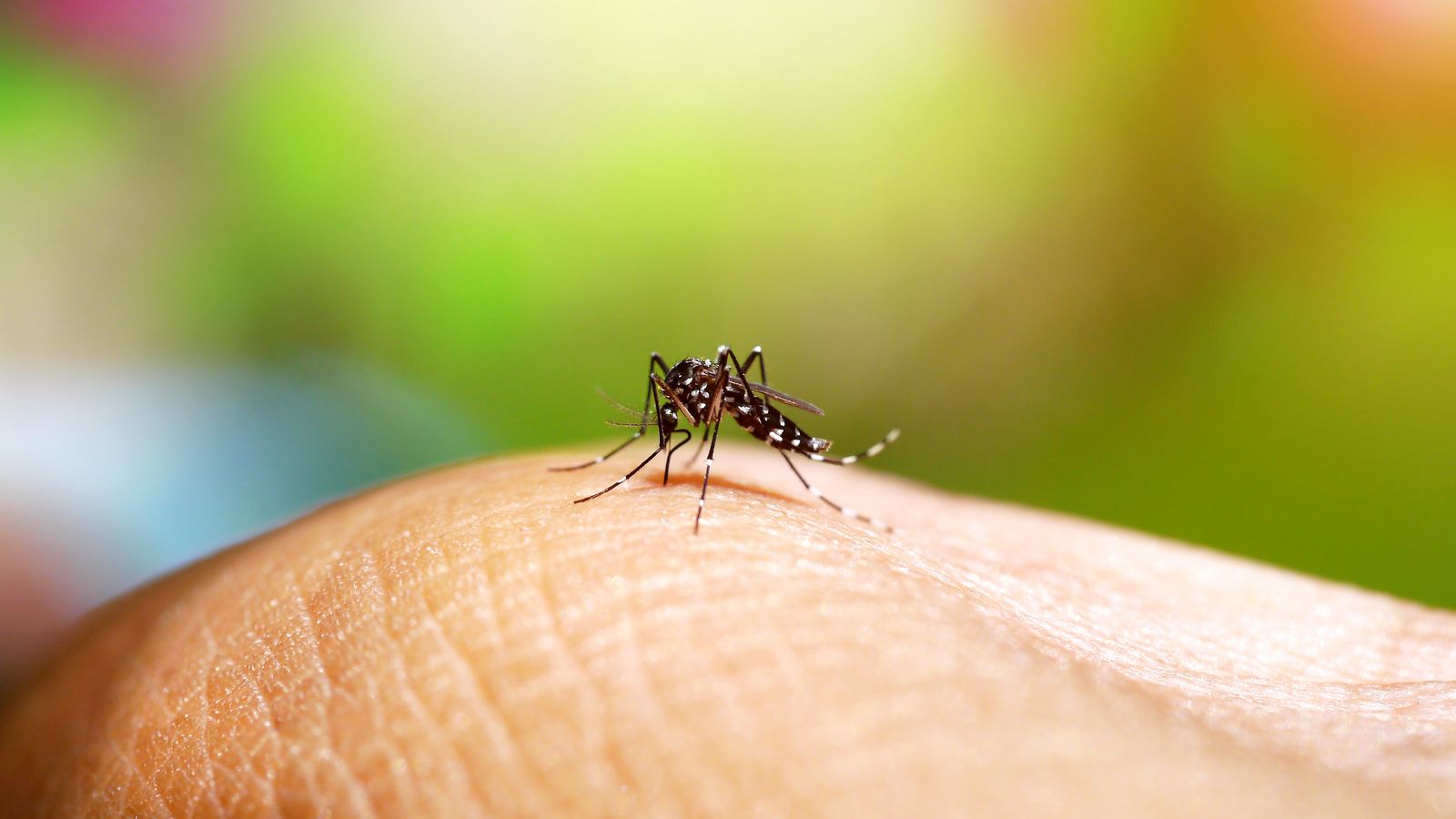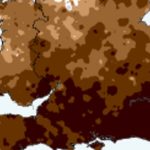Warmer weather in Europe is creating more favourable conditions for virus-spreading mosquitoes.
Mosquito-borne infections such as chikungunya and dengue are becoming more prominent in what were traditionally cooler parts of the world, according to a report by the European Centre for Disease Prevention and Control (ECDC)
Weather conditions, from heatwaves to flooding, encourage invasive mosquito species such as Aedes albopictus and Aedes aegypti, experts say.
The ECDC added the Aedes albopictus mosquito has now been found in 13 countries and 337 regions.
If this continues, there could be an increase in cases and subsequent serious illnesses.
ECDC director Andrea Ammon said: “In recent years we have seen a geographical spread of invasive mosquito species to previously unaffected areas in the EU/EEA.
“If this continues, we can expect to see more cases and possibly deaths from diseases such as dengue, chikungunya and West Nile fever.
“Efforts need to focus on ways to control mosquito populations, enhancing surveillance and enforcing personal protective measures.”
In 2022 there were 1,133 cases and 92 deaths of the West Nile virus infection in Europe.
It was reported that 1,112 cases were locally caught in 11 countries – which is the highest number of cases since the peak epidemic year in 2018.
That same year there was also 71 cases of dengue reported in Europe.
65 cases were from France and six were from Spain.
Read more from Sky News:
Dengue fever: What is it and how does it spread?
Blood test to detect 50 types of cancer could be given to ‘one million people next summer’
The ECDC has said in the report that the best way to control mosquito populations is by “eliminating standing water sources where mosquitoes breed, using eco-friendly larvicides, and promoting community awareness about mosquito control.”
Other way to protect from getting these diseases is to protect yourself from getting bitten. This can be done with the use mosquito bed nets, wearing clothes that cover most of the body and mosquito repellent.
Be the first to get Breaking News
Install the Sky News app for free
Dengue, also known as dengue fever, is a mosquito-borne viral infection caused by dengue virus (DENV). It is spread to humans by a bite from a female Yellow Fever mosquito.
Some of the symptoms of Dengue include a high temperature, severe headache, vomiting, swollen glands and more.
According to the NHS, some people with West Nile Virus (WNV) have no symptoms but some may develop mild flu like symptoms, a skin rash or may even feel nauseous.
The ECDC report has also said that West Nile virus is transmitted among birds through the bite of an infected Culex mosquito. This can then be transferred to humans and other mammals.
Symptoms associated to West Nile Virus include headache, restlessness, fever, muscle aches, vomiting, rash, fatigue and eye pain.
For cases of chikungunya virus, people may experience fever, joint pain, headaches, muscle pain and rashes.






















